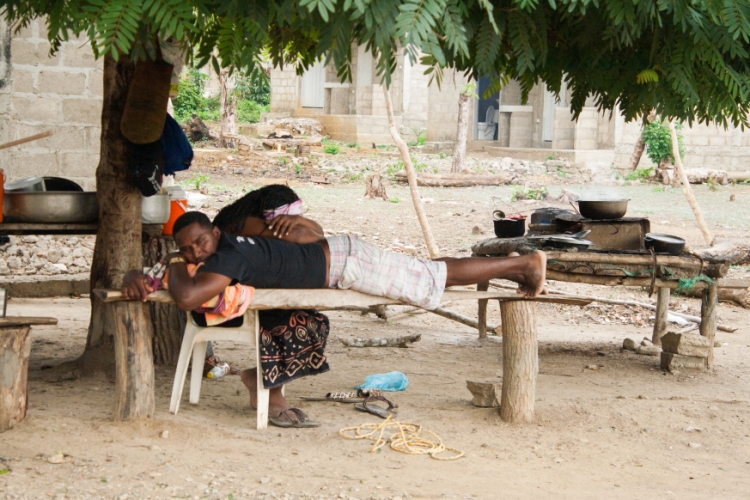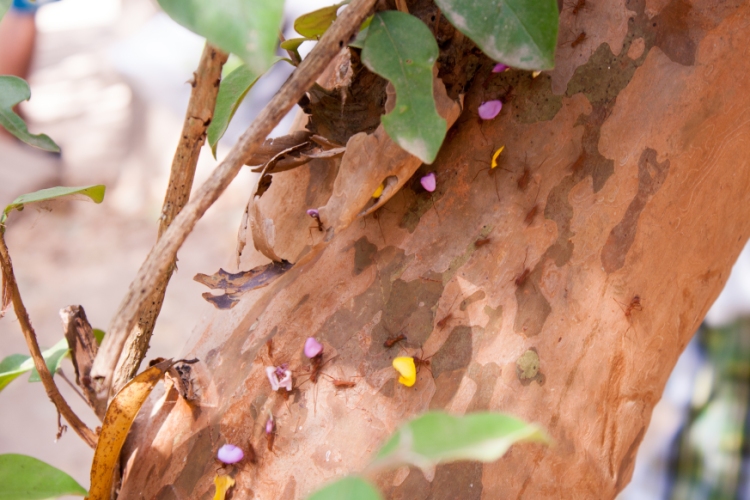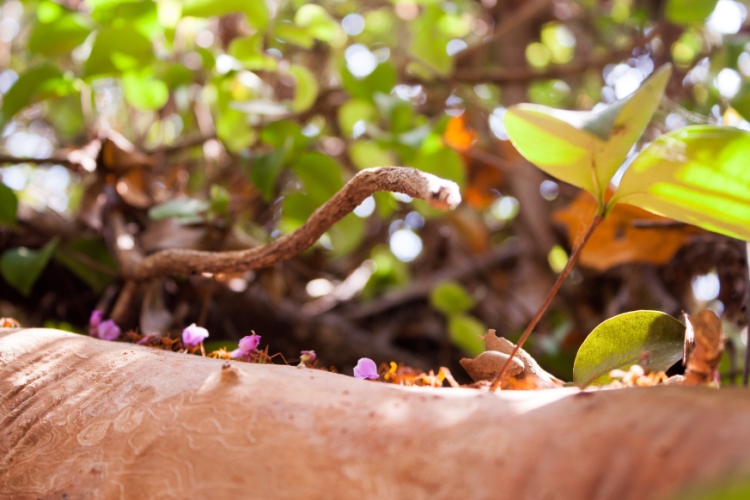By Anna Vogt, a service worker in MCC Colombia currently working with Justapaz, a Mennonite organization working for justice, peace and non-violent action in Colombia. Originally posted at: thellamadiaries.wordpress.com
One mark of being a foreigner here is comparing stories. Bring up the visa processes and expect a collective groan before someone launches into a complicated tale filled with woe, blood tests and paperwork. We love to outdo each other with tales of time spent standing in lines and being sent from one office to another.
Don’t tell anyone this, therefore, but nothing went wrong when I got my new visa stamped in my passport last week. Once I knew I was approved, it was fun to take the morning off to head up north. I’m actually not sure, however, if I enjoyed going, or the relief of knowing that my visa was renewed made everything wonderful.
There have been moments when everything was up in the air. The last time I was in the office of Migracion Colombia, I was questioned for supposedly participating in political activities outside of the reach of my visa. On Wednesday morning, it was nice to only have to concentrate on the National Geographic show on attack nocturnal elephants on the waiting area television, instead of fearing deportation.
Yet my week has been far from calm. Diego Vecino was released from prison on Friday. I have hardly celebrated my own freedom to stay in Colombia but instead spent a lot of time this weekend wondering what the paramilitary boss who ordered the displacement of Mampujan, along with a lot of other very bad things, is doing. What do you eat for your first breakfast of freedom?
I ate fried fish and coconut rice with Alexander in Mampujan during Holy Week as he told me of the fear running rampant in the nearby communities. Organizations were holding weekly meetings to figure out what to do when he was released. No one knew where or exactly when, but all were filled with dread at the panic of accidentally running into Diego Vecino on the street.
Alex has a different response. His vision is to return to sit down with Diego Vecino and talk, face to face, about what reconciliation means in practice, both personally and in his relationship with the region. Alex was part of a pilot program of a reconciliation and reparations committee formed to accompany the demobilization process of the AUC. He, along with other members of the community, was one of the few to participate in direct encounters with victimizers, managing to heroically overcome fear and the desire to take revenge. The thousands of remaining victims in the region have received no accompaniment and have no idea what to expect. Anything could happen.
Justice and opportunities are so unequally applied. While Diego Vecino eats a gourmet breakfast, my friend Jorge Montes is still in jail. Not only is he innocent, he has never even had a trial.
Everytime I go to Migracion Colombia or think about my visa, I remember Jorge. The march we all participated it, as well as the general nonviolent movement in the Alta Montaña, were catalyzing actions for Jorge’s arrest and our visa process. While I do not want to be kicked out of Colombia, it does not seem fair that I am free to move in and out of this country while Jorge cannot even leave the building.
I have written about Diego Vecino’s imminent release and Mampujan’s response before. I am still angry. Technically, I believe in all the rhetoric we throw around through the peace world: reconciliation, restorative justice, coexistence, forgiveness, and all the rest of that jazz. But right now, I don’t really want to hear about it. All I can picture is Diego Vecino drinking fresh squeezed orange juice while Jorge sleeps on a mattress on the floor of an overcrowded cell.
Yet in honour of Jorge and because I have the freedom to stay, I try to remember his words in one of his letters from prison.
I have no remorse in my conscience, since I have never been a part of any armed group, and I will never be, since my weapons are the Colombian laws that allow me to struggle for the well-being of the most marginalized.
These terrible and inhuman events have filled me:
With tolerance: Because I do not hate and will not hate my oppressors;vengeance is of God, and God will pay each of us according to our deeds.
With patience: Because I have learned to have patience and manage my despair.
With faith: Because I have complete confidence that I walk free and with my head held high.
With love: Because I have no thirst for vengeance.
With inner peace: I think this is the most important, because my conscience does not accuse me and I am convinced that I have never participated and never will in acts that will cause me to repent and much less any that will affect those around me.
I am not as brave as Jorge or Alex or Manuela. Someday, however, I want to be. More than anything, I want the courage I learn from those around me to be part of the story I tell of the rest of my time here in Colombia, along with the party we will have when Jorge is free.




